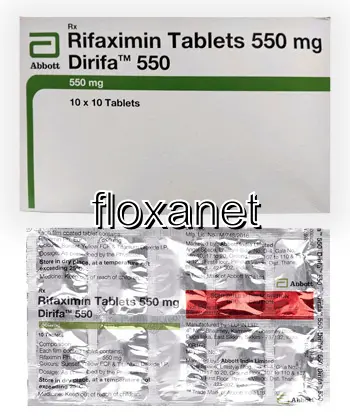| Package | Dosage | Price | Price per Dose | |
|---|---|---|---|---|
| Dosage: 200mg | ||||
| 270 pill | 200mg | NZD523.65 | NZD1.94 | |
| 180 pill | 200mg | NZD383.38 | NZD2.13 | |
| 120 pill | 200mg | NZD280.52 | NZD2.34 | |
| 90 pill | 200mg | NZD222.07 | NZD2.48 | |
| 60 pill | 200mg | NZD161.29 | NZD2.69 | |
| 30 pill | 200mg | NZD84.14 | NZD2.81 | |
| 20 pill | 200mg | NZD58.42 | NZD2.92 | |
| 10 pill | 200mg | NZD32.71 | NZD3.27 | |
| Dosage: 400mg | ||||
| 270 pill | 400mg | NZD958.48 | NZD3.55 | |
| 180 pill | 400mg | NZD673.27 | NZD3.74 | |
| 120 pill | 400mg | NZD462.87 | NZD3.86 | |
| 90 pill | 400mg | NZD357.66 | NZD3.97 | |
| 60 pill | 400mg | NZD245.45 | NZD4.09 | |
| 30 pill | 400mg | NZD126.22 | NZD4.21 | |
| 20 pill | 400mg | NZD86.48 | NZD4.32 | |
| 10 pill | 400mg | NZD44.40 | NZD4.44 | |
| Dosage: 550mg | ||||
| 270 pill | 550mg | NZD1,136.16 | NZD4.21 | |
| 180 pill | 550mg | NZD778.47 | NZD4.32 | |
| 120 pill | 550mg | NZD561.05 | NZD4.68 | |
| 90 pill | 550mg | NZD441.83 | NZD4.91 | |
| 60 pill | 550mg | NZD301.56 | NZD5.03 | |
| 30 pill | 550mg | NZD156.61 | NZD5.21 | |
| 20 pill | 550mg | NZD109.85 | NZD5.49 | |
| 10 pill | 550mg | NZD58.42 | NZD5.84 | |

Rifaximin Description
Introduction to Rifaximin
Rifaximin is an antibiotic medication widely used in the treatment of various gastrointestinal conditions. It belongs to the class of drugs known as rifamycins, which are derived from rifamycin. This medication is notable for its targeted action and minimal systemic absorption, making it a preferred choice for several intestinal disorders.
How Rifaximin Works
Rifaximin works by inhibiting bacterial RNA synthesis, which ultimately leads to the death of bacteria in the gastrointestinal tract. Its unique property of remaining largely confined to the gut reduces the likelihood of systemic side effects. This characteristic also means that it is effective predominantly against bacteria residing in the intestines, making it suitable for infections localized to this area.
Uses and Indications
This medication is primarily prescribed for the treatment of traveler's diarrhea caused by bacteria such as Escherichia coli. It is also used in managing hepatic encephalopathy, a complication of liver disease, by decreasing the number of ammonia-producing bacteria in the gut. Additionally, recent studies suggest its efficacy in preventing recurring episodes of irritable bowel syndrome with diarrhea (IBS-D). Rifaximin is also effective in treating certain bacterial overgrowths and certain cases of pseudomembranous colitis, especially when caused by Clostridioides difficile.
Administration and Dosage
Rifaximin is typically administered orally in the form of tablets or capsules. The dosage depends on the specific condition being treated. For traveler's diarrhea, a common dosage is 200 mg three times daily for three days. In cases of hepatic encephalopathy, a typical dose is 550 mg twice daily. It is essential to follow the doctor's instructions carefully, as improper use can lead to reduced effectiveness or resistance development. The medication is usually taken with or without food, but adherence to prescribed timing enhances its efficacy.
Possible Side Effects and Precautions
While generally well tolerated, Rifaximin can cause side effects in some individuals. Common adverse effects include nausea, dizziness, fatigue, and abdominal discomfort. Serious side effects are rare but may include allergic reactions such as rash or swelling. Patients with a history of allergic reactions to rifamycin antibiotics should use this medication cautiously. It is also important to inform the healthcare provider about any liver or kidney conditions before starting therapy, as adjustments may be necessary. Since the drug interacts minimally with other medications, it generally presents a low risk of drug interactions, but caution is advised when used concurrently with other gut-affecting drugs.
Benefits of Rifaximin
One of the main advantages of Rifaximin is its targeted effect with minimal systemic absorption. This results in fewer systemic side effects compared to other antibiotics. Additionally, its effectiveness in rapidly reducing symptoms of traveler’s diarrhea and hepatic encephalopathy has been well documented. The convenience of a short course treatment also improves patient compliance and outcomes.
Considerations and Resistance
Despite its benefits, the use of Rifaximin should be carefully monitored to prevent the development of bacterial resistance. It is crucial to use this medication only for approved indications and under medical supervision. Excessive or inappropriate use can diminish its effectiveness over time. Patients should also be advised to maintain good hygiene and follow dietary recommendations alongside the medication to optimize treatment results.
